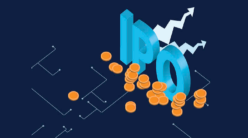EMI (Equated Monthly Installment) cards have become a popular payment option for people in India who want to buy big-ticket items such as smartphones, laptops, televisions, refrigerators, and other expensive gadgets. EMI cards provide consumers with the convenience of buying expensive items on credit and paying back the amount in monthly instalments. If you are considering getting an EMI card, here is everything you need to know about EMI card interest and fees.

What is an EMI card?
An EMI card is a payment option provided by banks and Non-Banking Financial Companies (NBFCs) that allows customers to buy products on credit and repay the amount in monthly instalments. EMI cards work like credit cards, allowing customers to make a purchase on credit. However, instead of the entire amount being due at the end of the month, customers can repay the amount borrowed monthly in pre-determined instalments.
Who provides EMI cards?
Most leading banks in India offer EMI cards to consumers. These include HDFC Bank, ICICI Bank, Axis Bank, Kotak Mahindra Bank, and others. Apart from banks, many NBFCs (Non-Banking Financial Companies) also provide EMI cards to customers. Some of the popular NBFCs that provide EMI cards include Bajaj Finserv, Capital First, and Home Credit.
What are the interest rates on EMI cards?
The interest rates on EMI cards vary from lender to lender and depend on various factors such as the cardholder’s credit history, the product being purchased, and the repayment tenure. Typically, banks and NBFCs charge interest rates ranging from 12% to 24% per annum on EMI cards. The interest rate charged on EMI cards is typically higher than that charged on a regular credit card. However, EMI cards offer the convenience of repaying the borrowed amount in monthly instalments, making it an attractive option for many consumers.
How can you get lower interest rates?
To get lower interest rates on EMI cards, you need to have a good credit score. A credit score is a numerical representation of your creditworthiness, based on your credit history and repayment behaviour. If you have a high credit score, you are likely to get lower interest rates on your EMI card. Additionally, you can also negotiate with your card issuer for a lower interest rate.
What are the fees associated with EMI cards?
Apart from the interest rates, there are various fees associated with EMI cards that need to be taken into consideration. These fees include:
- Processing fees: This is a one-time fee charged by the lender to process the EMI card application. The processing fee varies from lender to lender.
- Annual fees: Many lenders charge an annual fee for EMI cards, ranging from a few hundred to a few thousand rupees. This fee is charged every year and needs to be paid regardless of whether you use the EMI card or not.
- Late payment fees: If you miss paying your EMI on time, you will be charged a late payment fee. This fee can be a percentage of the outstanding balance or a fixed amount.
What can you buy on EMI cards?
EMI cards can be used to purchase a wide range of products such as smartphones, laptops, televisions, refrigerators, air conditioners, washing machines, and other gadgets, as well as home appliances, jewellery, and furniture. EMI cardholders can also avail of various discounts, cashback offers, and other deals when they buy products on EMI.
EMI card providers
The Bajaj Finserv EMI Card is one of the top-selling cards. The card offers a range of features and benefits, making it an attractive option for customers looking to make big-ticket purchases. In this article, we will explore the Bajaj Finserv EMI Card in detail, including its features, criteria for eligibility, and where you can use it.
Features of the Bajaj Finserv EMI Card:
1. No Cost EMI: The Bajaj Finserv EMI Card provides customers with the option to avail no-cost EMI. This means that customers can opt for zero-interest EMIs and pay only the purchase price, making it easier for them to finance their purchases.
2. Flexible Repayment Options: The card provides customers with flexible repayment options, and they can opt to repay the amount borrowed in monthly instalments ranging from 3 to 24 months.
3. Wide Range of Products: The card can be used to make purchases across a wide range of products, including electronics, appliances, furniture, and groceries.
4. Quick and Easy Approval Process: The approval process for the Bajaj Finserv EMI card is quick and straightforward. By filling out a quick online application, customers can get approved for the card in a few simple steps.
5. No Down Payment Required: One of the main advantages of the Bajaj Finserv EMI Card is that it does not require any down payment. This makes it an attractive option for those who do not have spare funds to make a down payment.
Criteria for eligibility:
The Bajaj Finserv EMI Card eligibility criteria is relatively simple
Where can you use the Bajaj Finserv
The Bajaj Finserv EMI Card can be used to make purchases both online and offline. Customers can use the card to make purchases at partner stores such as Amazon, Flipkart, Paytm Mall, Vivo, Samsung, and many others. In addition, customers can also use the card to make purchases at offline stores such as Big Bazaar, Reliance Digital, Croma, Vijay Sales and other retail chains.
Conclusion
In conclusion, EMI cards are a convenient payment option for people who want to purchase expensive items on credit and repay the amount in monthly instalments. While EMI cards offer the convenience of repaying in instalments, customers need to be aware of the interest rates and fees associated with EMI cards to avoid unnecessary financial burdens. EMI cards are a great option for those who need to buy pricey products but may not have the funds necessary to make a full purchase upfront.





